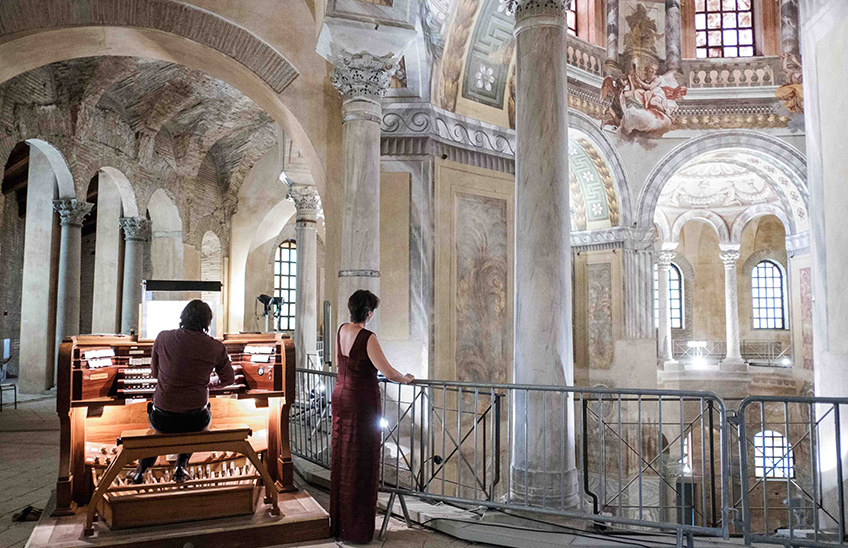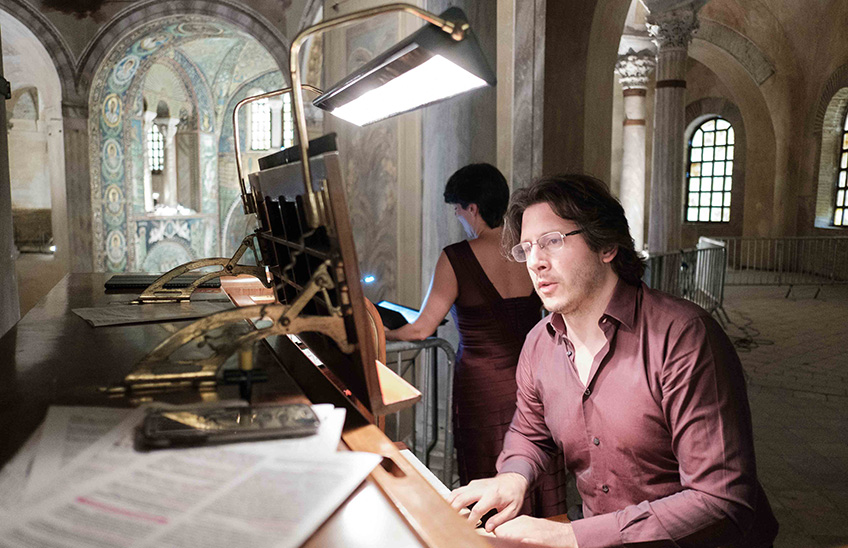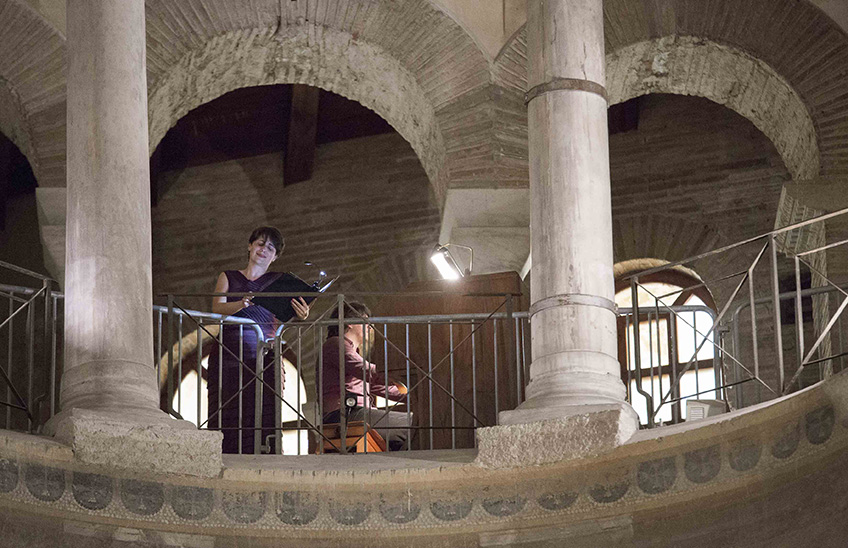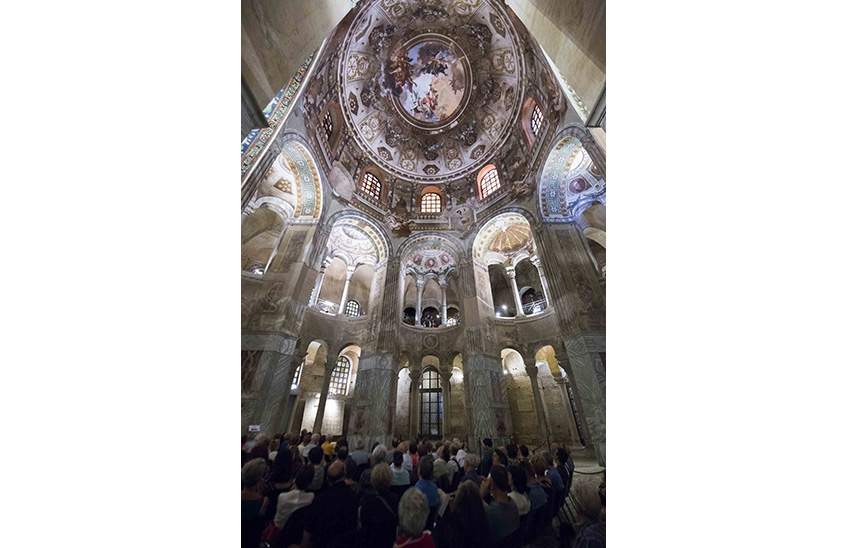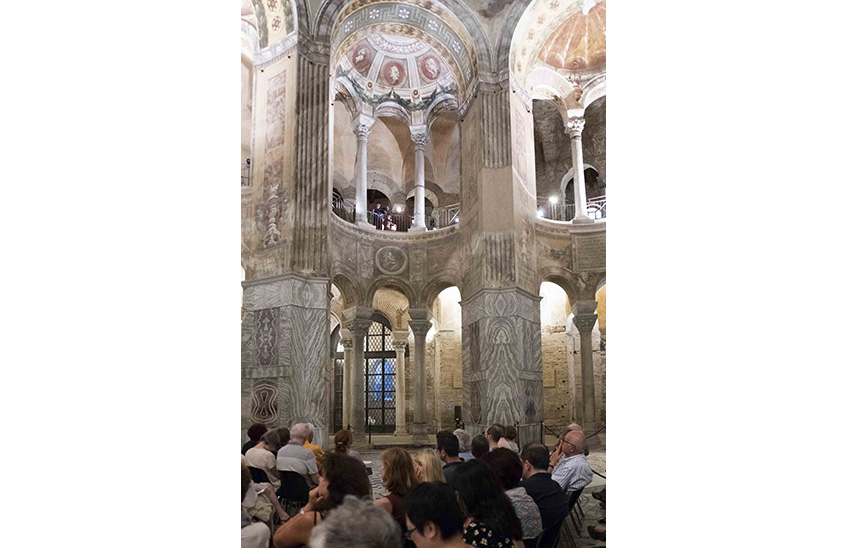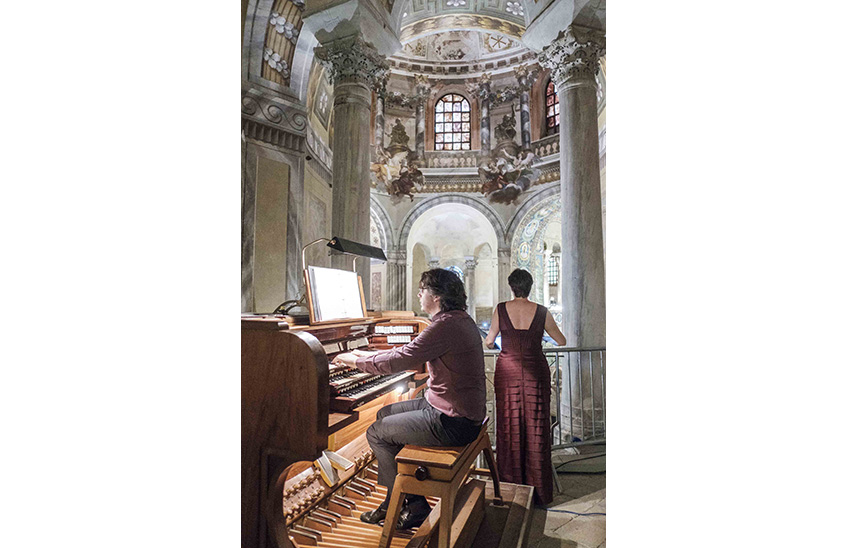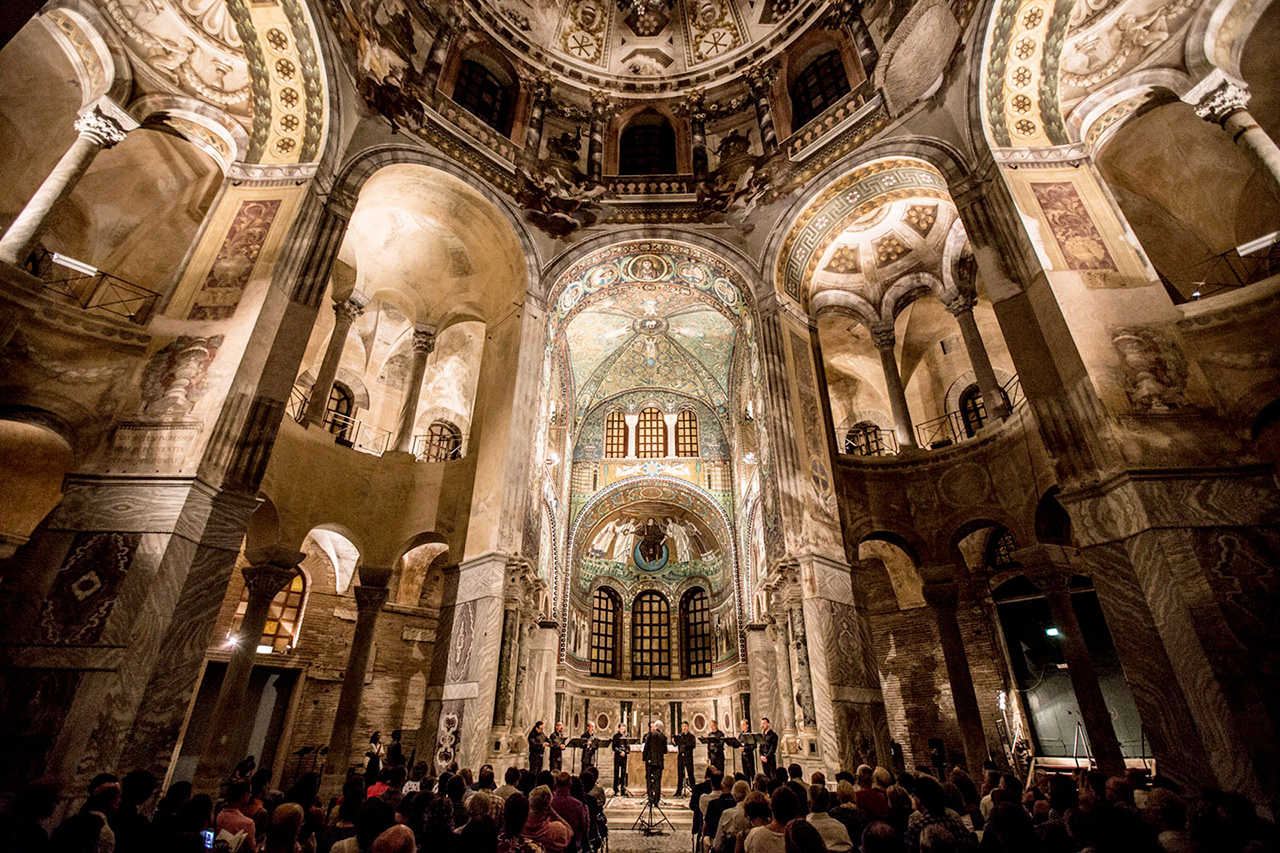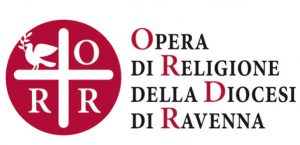© Luca Concas
The Vespers at San Vitale
A Tribute to Rheinberger
DiStileria
Marta Fumagalli mezzosoprano
Marco Cortinovis organo
Josef Gabriel Rheinberger (1839-1901)
da 12 Meditationen op. 167
VIII. Tempo di marcia (organo)
da 6 Religiöse Gesänge op. 157
I. Sehet, welche Liebe
II. Ich bin des Herrn
da 12 Meditationen op. 167
VI. Aria (organo)
da 6 Religiöse Gesänge op. 157
III. Wenn Alle untreu werden
IV. Vater unser
da 12 Meditationen op. 167
IX. Tema Variato (organo)
da 6 Religiöse Gesänge op. 157
V. Nachtgebet
VI. Ave Maria
Born in Lichtenstein, Joseph Gabriel Rheinberger (March 17, 1839 – November 25, 1901) spent most of his life in Munich. He started as an enfant prodige, and grew to become an all-round musician with an articulate profile: a virtuoso of the organ and piano, a prolific composer, and a teacher, conductor, researcher and musicologist. Virtually unknown today, he was active for almost fifty years, signing over two hundred compositions of different kinds — twelve Masses, a Requiem, a Stabat Mater, symphonies, choral and solo vocal music, works for the theatre and, of course, innumerable organ compositions. Rheinberger is especially notable for his twenty organ sonatas, which were welcomed as “a happy blending of the modern romantic spirit with masterly counterpoint and dignified organ style”.
Rheinberger’s music is chiselled to perfection in a clear classic vein, with an always refined sense of melody and a balanced, quite original harmonic development. These features are enough to make him one of the most interesting and beloved authors of his time, dominated as it was by the genius of Johannes Brahms.
